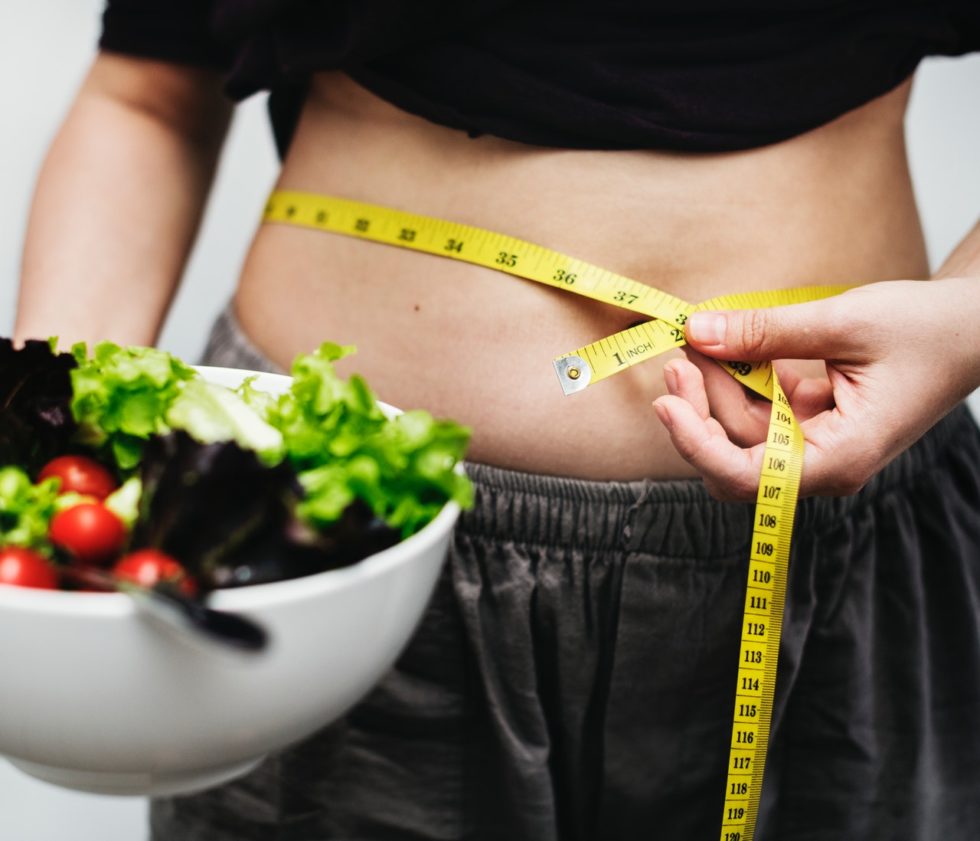We all know that everything from chemistry to compatibility come into the picture of defining the “whole package” for most people. Frankly, it’s easy for a dating “guru” or “expert” to suggest that you have to get it all into shape before you’ll be considered ready to date. After all, it brings them business in “fixing you.” Simply put, I don’t agree with the gurus. I think we are all a work in progress our entire lives. If you wait for “perfection,” you’re going to be alone for a long time.
Weight, fat, fitness, health… it’s a component that’s hard to overlook. And I don’t think you should. A lot of times, weight — either over or under optimal — indicates overall health. But not always. Most people are on a continuum between “biggest loser” and “I’ve given up.” The important thing is to be as far away from the “I’ve given up” extreme as possible. The closer you are to overcoming your mental challenges and attitude around weight loss, the more attractive you’re going to be to your date of choice whether you’ve attained “skinny” or not. A “fattitude” can really slow you down.
I’m consistently reading and hearing things like, “If you’re overweight you’ll never find someone good so just eat right, exercise and lose the weight!” Well, from someone who’s dealt with weight issues, there is nothing more frustrating than having a skinny person blithely throw off advice like “just lose the weight.” I even had a guy I’d just met tell me, when I was at my heaviest, that the only thing I needed to change was my eating habits and I would find a great guy. I pondered this for about 3 seconds and queried, “So, I’m eating about 1200 cal a day off the American Heart Association’s and nutritionist’s recommended list and work out 8x a week — 4 with a trainer. Do you have any other suggestions since I seem to be fresh out of ideas?”
Yes, I was mad. And snippy.
Especially since it took me 4 doctors and 5 long years of people assuming it was a diet and exercise thing before a specialist figured out the problem and got me on the right track. Less than a year later, I’m down 5 sizes and back into my old clothes. Same food. Same exercise. All it was, was a case of misplaced hormones.
I tell you that story, not to give you an excuse to sit on your butt and eat bon bons and blame your hormones, but to tell you that I’m not just another skinny person talking about what to do when you’re trying to date with extra weight on you. It can be challenging, frustrating and disheartening. And for the first 2 years of hormone wackadoodleness I fell victim to the lie that I had to get back to skinny before I would find a “good” person. Sad for me, since I missed out on some great dating years by being focused on the wrong things.
If you only get one thing out of this post, it’s this:
You do not have to be perfect to find the perfect person for you.
Quoting Elena Lynn, a relationship coach:
i’ve noticed that despite a weight fluctuation of 60 pounds between thinnest and fattest, it’s never made any difference in dating/sex life. the difference is entirely in *me* – if I wallow in worry, I either become less attractive or I don’t notice/believe when people are attracted. If I don’t worry and just be confident and fun and interested and enthusiastic, he doesn’t seem to notice fat.
OTOH [on the other hand] fat is something other people can see, right away, so anyone who is not attracted to me when I’m heavier isn’t going to come into my radar anyway – it’s not like he won’t see it and then be shocked when we get naked. Besides, clothes are visually fattening and make you feel fat, so the best thing to do is get naked. And get a great bra for when you can’t be naked!
Having a fat attitude (fattitude) can be one of the greatest dating deterrents because potential dates catch onto your negative self-propaganda and believe it too. (This can also happen to the “skinny girls” who myopically focus on pounds and perception. I never saw so much “fattitude” as when I lived in LA amongst all the — literally — starving artists.)
A few indicators that you may be projecting a “fattitude:”
- You lead off with excuses and/or explanations about your weight when meeting someone new.
- You talk incessantly about food, exercise, weight, size, etc.
- You judge everyone around you by “heavier or lighter” than you.
- Your fridge is COVERED with pictures of models you want to look like.
- You are waiting for life to begin… when you get skinny. (You’re trapped by waiting for your own potential to be realized.)
- When you see a picture of yourself, you judge it by whether or not it makes you look “fat.”
- You’re one of “those people” who use 10 year old pics on your online profile.
- You don’t believe that someone you’re attracted to might be interested in you because they’re “thin” or “in shape” or “hot.”
- You’re wearing huge and unshaped clothes in an effort to hide your body.
- You notice and comment on celebrity/friend/family/neighbor weight gain/loss (and sometimes you can be harsher than the paparazzi.)
- Your closet looks like the intersection of “Hope to get there” and “Never going back.”
- You refuse to eat anything other than things like “salad, hold the dressing” in front of other people.
- Naked? No can do kimosabe.
- You’re loud and proud and usually it’s just an overblown persona to hide behind since you’re hoping that people will talk about that instead of your weight.
- There have been nights when you just didn’t want to go on a date because you were having a “fat” day.
- The day you let someone post a candid pic of you coincides with the day you see pigs flying outside your window.
A few tried and true tips to adjust your fattitude:
- Find a way to start focusing on what you like about yourself instead of constantly critiquing what needs “fixing.” I had to start simple with one thing a day I liked when I looked in the mirror and move up from there.
- Remember that size and weight are relative. Every designer has a different “size 10″ and every person looks different at 175 lbs. Muscle tone, fitness and a positive attitude will overcome a multitude of extra pounds.
- Surround yourself with supportive people. I’m not talking about critics, food pushers or yes men. You need friends and family around you who will reflect what they find lovable about you AND do what you ask them to do to help you with your goals. That’s right… you need to figure out your plan and ask for help. Unsolicited advisors need not apply.
- Some people are going to be judgmental. Some people are going to reject you. Others are going to try to change you. All of them… not your problem. Stay focused on what the healthy people in your life say and what you know about yourself and roll on to the next date. It’s easy to use rejection as an excuse to hide, but if you do, you’re choosing to play it safe and it’s really hard to find an exciting partner in the safety zone. (despite what the Safety song says about the matter)
- Make sure the scale is your friend. If your whole day goes down the drain from a 1 pound weight gain, then limit your weighing to once a week or only at the gym… something where you remember that this is a cumulative process and not a reason to stop drinking 100 oz. of water a day to lose the water weight.
- Along the same lines, if reading magazines and watching TV depress you and make you focus on what you don’t have (ie. a size 2 body)… it might be good to take a media diet for a while.
- Know that some parts of our country are worse than others when it comes to looking for the skinny. If you’re living in a major coast city, you’re swimming upstream and it’s going to be a little more challenging to fight perception, shop, date, etc. I’m not saying it can’t be done, just know that you’re really going to need to find a support network.
- Get thee to an expert and do your research. If you know that something is wrong, don’t let someone fob you off with “eat better and exercise.” Sometimes it’s not a simple fix and some doctors don’t know what they’re talking about when it comes to the endocrine system. The greatest thing I learned from my specialist… the “guidelines” are only that… guidelines. And some people’s “healthy” does not fit inside traditional guidelines.






